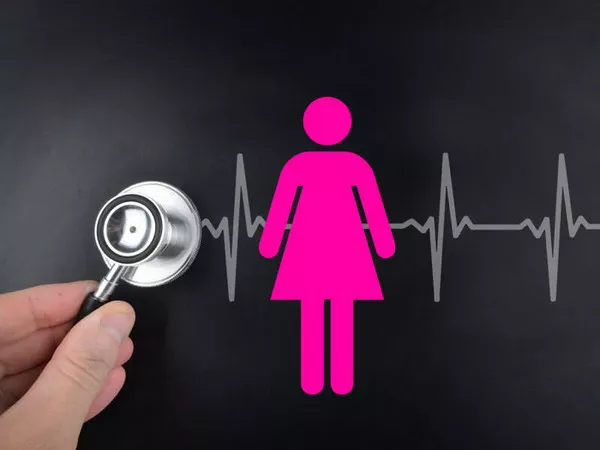A recent study published in Nature Communications reveals concerning links between blood pressure treatment and mental health outcomes, particularly highlighting increased anxiety in women and decreased vitality in men. The findings underscore the necessity for personalized mental health support for individuals undergoing hypertension treatment.
The research, which analyzed data from over 7,250 participants in the Tehran Lipid and Glucose Study (TLGS) collected between 2014 and 2017, found that adherence to hypertension treatment was inversely associated with physical health-related quality of life (HRQoL) for both sexes. However, the mental health outcomes showed significant differences based on gender.
Among men with high blood pressure who adhered to treatment, only vitality was negatively affected. In contrast, women exhibited more complex emotional responses: those adhering to anti-hypertensive treatment reported increased anxiety, whereas those who did not adhere faced higher levels of depression and stress.
The study emphasizes the urgent need for psychiatric support for hypertensive patients and advocates for tailored treatment approaches to enhance HRQoL outcomes.
Hypertension, characterized by persistently high blood pressure, is a chronic condition linked to over 8.5 million deaths annually, either directly or indirectly through associated health complications. The condition is increasingly prevalent, particularly in Middle Eastern and developing countries. In Iran, approximately 37% of adults are estimated to have hypertension, yet less than half are diagnosed, and even fewer consistently follow treatment protocols.
“Hypertension is a complex condition that significantly affects both physical and mental health,” the researchers noted, highlighting the importance of a comprehensive treatment strategy that includes lifestyle modifications, medication, and regular health monitoring.
The study aligns with the Biopsychosocial Model of Health and Disease, which suggests that biological, psychological, and social factors collectively influence health outcomes in chronic conditions like hypertension. Previous research has primarily focused on Western populations, leaving a gap in understanding HRQoL outcomes for Middle Eastern patients.
The study aimed to fill these gaps by exploring how different levels of blood pressure and treatment adherence affect HRQoL and emotional states among Iranian adults. It also considered the roles of sex, disease awareness, and treatment adherence in shaping health outcomes, with the goal of informing public health strategies to improve the quality of life for those with hypertension.
Data were collected from a subset of the TLGS cohort, which included 7,941 adults, with 7,257 providing complete demographic, socioeconomic, and medical history data. Hypertension was defined according to Joint National Committee (JNC-VII) guidelines, which classify it as a systolic blood pressure of 140 mmHg or higher, a diastolic pressure of 90 mmHg or higher, or ongoing treatment for hypertension.
Participants were categorized into four groups: normotensive, undiagnosed hypertension, diagnosed hypertension with treatment adherence, and diagnosed hypertension without treatment adherence. Emotional health was assessed using the Persian version of the Depression, Anxiety, and Stress Scale (DASS-21), while HRQoL was measured with the Persian version of the 12-item Short Form Health Survey (SF-12v2). Statistical analysis employed linear and logistic regression models, adjusted for sex, demographics, and hypertension status.
The study revealed that 54.4% of participants were women, with an average age of 47 years. Women had a higher average body mass index (BMI) and a greater prevalence of chronic diseases compared to men. While the majority of both genders were normotensive (78.3% of women and 75.7% of men), hypertension was slightly more common in women (17%) than in men (14.7%).
Interestingly, individuals with undiagnosed hypertension did not exhibit impaired HRQoL or emotional issues. However, those with high adherence to anti-hypertensive treatment experienced significantly lower HRQoL and emotional well-being across both sexes.
Sex-specific analysis indicated that men’s emotional health remained unaffected by blood pressure levels, while hypertensive women on medication reported heightened anxiety. In contrast, women who did not adhere to treatment showed increased levels of depression and stress.
Conclusion
The findings of this study illuminate the intricate relationships between hypertension, HRQoL, and emotional states, particularly regarding the effects of treatment adherence. Both men and women who adhered to anti-hypertensive medication experienced lower HRQoL scores, with men less impacted by blood pressure levels concerning mental health. In contrast, hypertensive women faced either increased anxiety or heightened depression and stress, depending on their adherence to treatment.
These results highlight the critical need for psychiatric support and personalized treatment plans to enhance HRQoL and mental well-being among patients with hypertension.
Related Topics:
-
Severe Funding Deficit Exacerbates Syria’S Mental Health Crisis
-
Scientists Discover How A Ketogenic Diet Can Help Some Patients With Multiple Sclerosis
-
Artificial Intelligence Shows Promise In Predicting Embryo Health Without Invasive Testing

